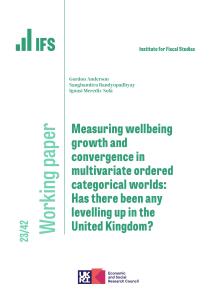About 18 months ago I wrote a cheerful piece on these pages. I don’t think it’s the last cheerful thing I’ve written, but it was intended as a pick-me-up, reminding us of how much better things are than they used to be. Compared with the late 1960s, when I entered this world, we live much longer, we have much higher incomes and better living conditions, we have access not only to whizzy new things like smartphones, but also to basics such as central heating, which were a relative rarity 50 years ago. And, unlike nearly 40 per cent of adults back then, we mostly have our own teeth.
Even after the dreadful year that was 2020, all those things are still true. We are much, much better off than we were. Even Covid will have done no more than put a temporary and small dent in the huge increases in incomes and life expectancy that we have enjoyed. All being well, we should be able to get back to making progress, in both our material wellbeing and our health, during 2021.
If we are going to make progress for everyone, though, we are going to have to learn from recent mistakes. It won’t have escaped your notice that life has not been hunky dory for everyone over recent years. Those gains are real, and really widespread, but they have not been equally spread. Both income and health inequalities are considerably greater than they were a half a century ago.
One divergent set of fortunes stands out, has become much more prominent in the past few years and could become more pronounced in the wake of the pandemic if we don’t get our response right. I’m talking about what has happened to the different generations.
Since I was born, the world has been turned on its head. Pensioners were once far more likely to be poor than the young. Now the young, especially those with children, are much more likely to be in poverty. On average, pensioners now enjoy higher living standards than the young. After decades of increasing rates of home ownership, younger generations are now much less likely to get on the housing ladder than was the case 20 or 25 years ago. And wages for those in their twenties have, at best, stagnated for more than a decade. We are heading towards a world in which those in their twenties now could well end up enjoying a lower standard of living than their parents’ generation. That is not a recipe for a contented and stable polity.
This trend is likely to be accelerated by Covid if we don’t act to stop it. In the short run, more pensioners say that they got financially better off over lockdown than the reverse. Meanwhile, young people took the brunt of job losses and those entering the labour market face a torrid time. Leaving school or university in the middle of a recession can have profound long-term consequences. So we need to support the incomes, education and training of young people as we struggle back to normality.
What worries me perhaps more, though, is how the government responds to the huge new dose of monetary easing that we have seen this year. Interest rates even lower. Hundreds more billions of quantitative easing. And guess what? In the middle of this deepest recession in centuries, house prices have surged. While the stock market hasn’t had a great year, it’s not done at all badly under the circumstances. Those who already own wealth have been well protected. Those who aspire to own wealth have been dealt another blow. For young people without parental help, Covid has made home ownership an even more distant dream. The chances of saving enough for a decent pension have receded even further.
That’s what happened back in 2010. Interest rates were slashed to their lowest levels in history and stayed there. Then, as now, it may have been necessary to support the economy, but it had big distributional consequences. Government could have used its fiscal toolbox to offset those consequences. It could have protected spending on the young, raised taxes on valuable properties or pensions in payment or capital gains. It did the reverse — protecting, indeed enhancing, the income and wealth of the old while cutting spending on the young. Taxes were raised on pension contributions, not on pensions in payment. Rather than lean against the effects of monetary policy, fiscal policy pushed in the same direction.
A world in which there are some lucky boomers who have done very nicely, thank you, and many resentful millennials who have not, may not be perfect, but perhaps we could live with it. What feels less easy to live with is the fact that we have created a world in which the brute luck of their parents’ wealth will become ever more important for the lives of those millennials; more important relative to their own efforts and achievements.
Rishi Sunak will have a host of tough choices and trade-offs to make as he steers the economy and the public finances into calmer waters. At the very least, the chancellor needs to avoid exacerbating these inequities further, as his predecessors often did. That means looking at tax and spending decisions according to how they affect those with wealth, and those without. It also means making sure that the Treasury keeps an eagle eye on how public money is spent. We do younger generations no favours at all if we allow public debt to rise inexorably unless we are really very sure that we are getting good long-term value for the money being spent. The young will get the benefits of spending that enhances growth. But they’ll also be on the hook for the debt incurred.
This article was first published in The Times and is used here with kind permission.








